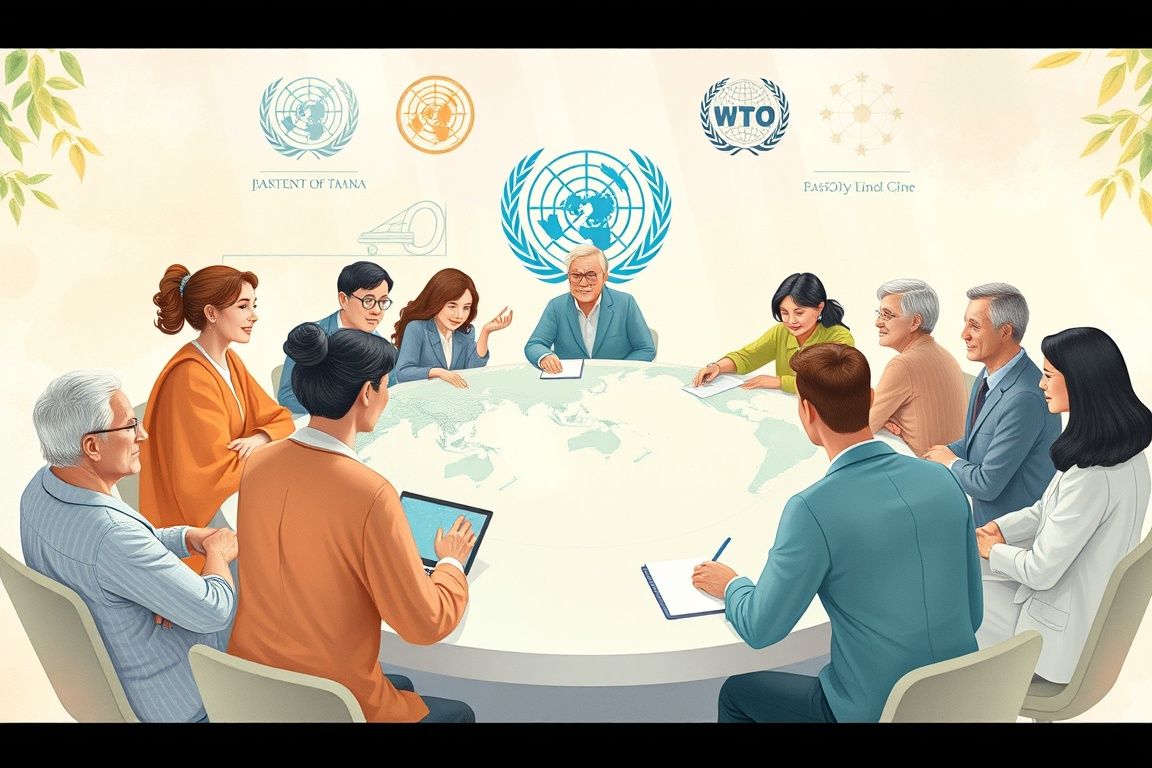Understanding Global Governance and Institutions
Why It’s Worth It
Develop a comprehensive understanding of key international institutions and their roles.
Enhance analytical skills by applying theoretical frameworks to real-world scenarios.
Prepare for a career in international relations, policy-making, or global governance.
Your Learning Roadmap
Foundations of Global Governance
This module introduces the concept of global governance, exploring its evolution, key theories, and the basic framework behind international institutions. It sets the stage for deeper dives into specific organizations in later modules. Introduction to Global Governance Theoretical Frameworks and Concepts Evolution of International Institutions
The United Nations: Structure and Influence
This module focuses on the United Nations, tracing its history from its post-World War II foundation through its current initiatives. It examines the organization's structure, key agencies, and the challenges it faces in a changing global landscape. History and Formation of the UN Structure and Key Agencies UN Peacekeeping and Global Influence
Global Trade Governance: The World Trade Organization
This module explores how the WTO governs international trade, maintains a rule-based system, and handles trade disputes. The lessons provided will deepen understanding of trade policies and the challenges the organization faces in a globalized economy. Role of the WTO in Global Trade Dispute Resolution Mechanism Challenges and Critiques of the WTO
Economic Governance: International Monetary Fund and World Bank
This module examines the functions and influence of the International Monetary Fund and the World Bank. It covers their strategies in economic stabilization, development financing, and policy conditionality, providing a critical look at their impact on national economies. Functions and Missions of the IMF Role of the World Bank in Development Policy Influence and Economic Stabilization
Challenges and Future of Global Governance
This module addresses contemporary debates about the effectiveness of global governance structures. It covers critiques of major institutions, reform proposals, and emerging trends that may reshape international policy and global regulation in the future. Critiques and Limitations of International Institutions Debates over Institutional Reform Future Directions in Global Governance
What Users Are Saying
All You Need to Know
Enroll in Global Governance Now!
Interactive learning with real-time AI support.
Flexible pacing to fit your schedule.
Engage with content through questions and examples.
Explore various global institutions in depth.
Gain a well-rounded understanding of policies.
Immediate feedback to enhance learning outcomes.

